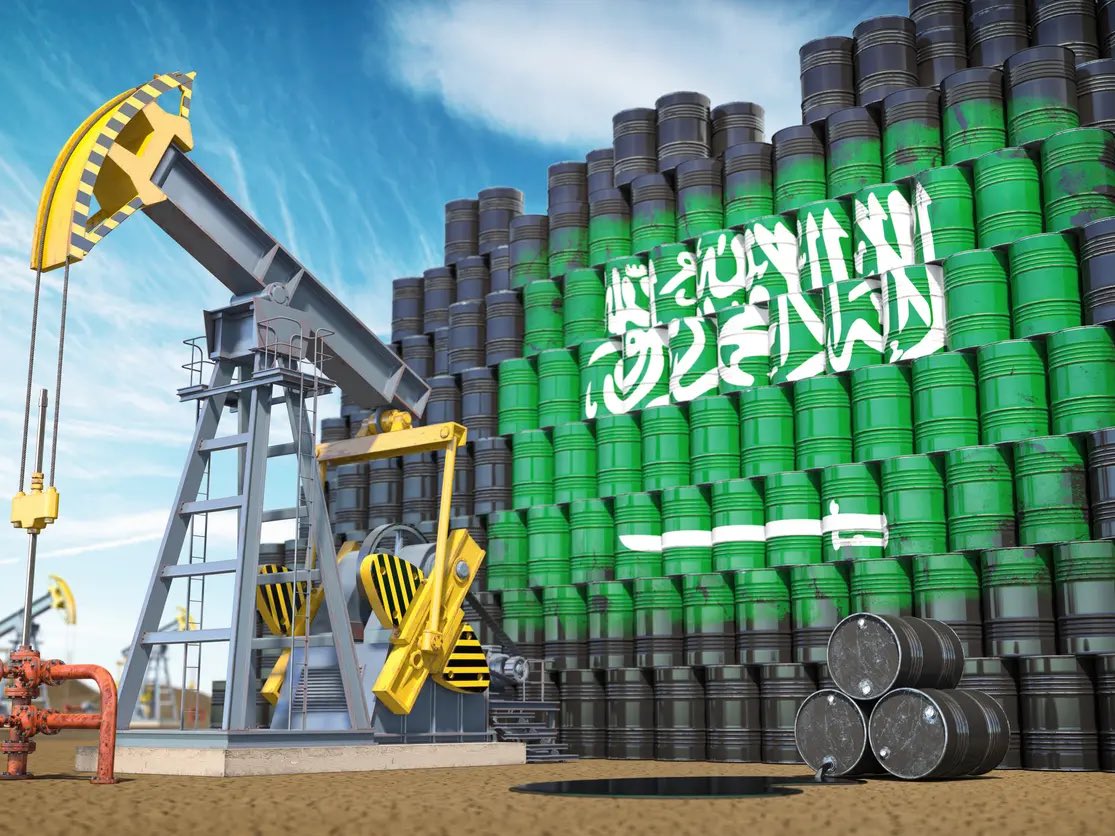The World Bank's Warning: The Israel Palestinian Conflict's Impact on Global Oil Prices
The World Bank's assessment paints a sobering picture. In a "small disruption" scenario, global oil prices could surge to a range of $93 to $102 per b
The World Bank's Warning: The Israel Palestinian Conflict's Impact on Global Oil Prices
In a world marked by intricate geopolitical dynamics and economic interdependence, even events seemingly confined to a specific region can send ripples across the global stage. The recent conflict in Palestine has garnered significant attention, not just for its immediate humanitarian consequences but also for the potential to reshape the global energy landscape. The World Bank has issued a stark warning, stating that the ongoing war in Palestine has the potential to push worldwide oil prices to unprecedented levels.
The World Bank's assessment paints a sobering picture. In a "small disruption" scenario, global oil prices could surge to a range of $93 to $102 per barrel. If the situation escalates into a "medium disruption" scenario, prices might reach an even more staggering range of $109 to $121 per barrel. To understand the gravity of this prediction, it's essential to delve into the intricate factors contributing to this scenario.
Regional Turmoil and Supply Disruption
Palestine's geographical location is critical in the context of global oil supply. The Middle East is a key hub for oil production, with major oil-exporting countries like Saudi Arabia, Iraq, and Iran situated in the region. The escalation of conflict in Palestine threatens the stability of this vital oil-producing area. Disruptions in supply chains could lead to oil shortages, thereby increasing prices.
Market Sentiment and Speculation
The oil market is highly sensitive to geopolitical developments. Any signs of instability can trigger speculative trading, causing prices to rise. The prolonged conflict and uncertainty surrounding its resolution can lead to a more cautious market sentiment, potentially driving prices upwards.
Energy Transition and the Push for Alternatives
As the world increasingly shifts towards renewable energy sources and reduces its dependency on fossil fuels, the market remains in a delicate balance. However, disruptions in oil supply can hasten the transition, as countries accelerate efforts to diversify their energy sources. This, in turn, could lead to a spike in demand for oil, further affecting its price.
Inflation and Economic Impact
Rising oil prices have a domino effect on the global economy. Higher energy costs lead to increased production expenses, which are often passed on to consumers in the form of higher prices for goods and services. This inflationary pressure can strain economies worldwide, potentially causing economic slowdowns.
The World Bank's warning underscores the interconnectedness of our world. What transpires in one region can profoundly impact economies and societies across the globe. As international efforts continue to address the conflict in Palestine and work towards stability, the world watches with bated breath, recognizing the far-reaching consequences it may hold for global oil prices and the broader economic landscape. Balancing the immediate humanitarian needs with the long-term economic and energy considerations will be a challenging task for policymakers and stakeholders alike.
Furthermore, the World Bank's warning emphasizes the critical need for proactive measures and a comprehensive approach to mitigate the potential impacts on global oil prices and the broader energy sector. Here are some key considerations and strategies that could be employed to address this impending issue:
Diplomatic Efforts
A peaceful resolution to the conflict in Palestine is paramount. Diplomatic channels should be fully utilized to facilitate dialogue and negotiations. A stable and secure region is essential for maintaining a consistent oil supply and stabilizing prices.
Diversification of Energy Sources
As the world is transitioning towards cleaner and more sustainable energy options, accelerating investments in renewable energy, such as solar, wind, and hydropower, can reduce the world's dependence on oil. Governments and businesses should continue to promote and invest in these alternatives.
Energy Efficiency Measures
Implementing energy-efficient technologies and practices across industries can help mitigate the impact of rising oil prices. Governments should incentivize energy-efficient initiatives to reduce consumption and, subsequently, the demand for oil.
Emergency Stockpiles
Many countries maintain strategic petroleum reserves to ensure energy security during times of crisis. Expanding these reserves can provide a buffer against short-term supply disruptions and help stabilize prices during geopolitical turmoil.
Geopolitical Risk Assessment
Regular monitoring of geopolitical developments, not only in the Middle East but globally, is essential. Understanding potential risks and their implications for energy markets allows governments and businesses to make informed decisions and develop contingency plans.
Investment in Energy Infrastructure
Increasing investments in infrastructure, such as pipelines and storage facilities, can enhance the resilience of energy supply chains. These investments can reduce vulnerability to supply disruptions caused by regional conflicts.
Consumer Education
Informing the public about the potential impact of geopolitical conflicts on energy prices can encourage responsible energy consumption and prepare individuals and businesses to adapt to changing market conditions.
Collaborative International Efforts
Multilateral cooperation among countries and international organizations can facilitate coordinated responses to energy crises. Sharing resources and strategies can help stabilize markets and alleviate the impacts of supply disruptions.
The World Bank's warning serves as a reminder of the fragility of our interconnected world. It underscores the necessity of addressing not only the immediate humanitarian concerns but also the wider economic and energy implications of regional conflicts. As we navigate these challenges, global cooperation, strategic planning, and a commitment to sustainable energy alternatives are paramount in ensuring a more stable and resilient global energy landscape. The world watches and waits, hopeful for a peaceful resolution in Palestine and a more secure energy future.
In the face of the potential threat to global oil prices posed by the conflict in Palestine, it is clear that nations and global entities must take proactive steps to mitigate the impact and secure a stable energy future. Here are some supplementary considerations and strategies
Investment in Energy Security Research
Governments and international organizations can allocate resources to research and develop innovative solutions for energy security. This could include advanced technologies for energy storage, more efficient transportation, and resilient energy grids.
Transparency in Oil Markets
Enhanced transparency in oil markets can help reduce speculation and price volatility. Regulations and reporting requirements for oil trading can be strengthened to provide a clearer picture of supply and demand dynamics.
Geopolitical Risk Hedging
Businesses and governments can explore hedging strategies to protect against sudden oil price spikes. Hedging involves purchasing financial instruments that offset potential losses from rising oil prices.
Regional Cooperation
Regional cooperation among neighboring countries can help ensure stable energy supplies in the face of conflict. Bilateral and multilateral agreements on energy sharing and infrastructure development can reduce vulnerabilities to disruptions.
Promotion of Alternative Transportation: Encouraging the use of electric vehicles and public transportation can reduce oil consumption in the transportation sector. Governments can provide incentives for the adoption of electric vehicles and the development of charging infrastructure.
Strategic Resilience Planning
Governments and businesses can create resilience plans that outline strategies for dealing with disruptions in energy supply. These plans can include diversifying supply sources, maintaining emergency response capabilities, and collaborating with international partners.
Green Transition Acceleration
The global community can use the threat to oil prices as a catalyst to accelerate the transition to green and sustainable energy sources. Increased investments in renewable energy, energy efficiency, and carbon reduction can reduce dependency on oil.
Consumer Behavior Modification
Public awareness campaigns can encourage individuals to adopt more sustainable and energy-efficient behaviors. Simple steps like conserving energy, reducing waste, and minimizing travel can collectively make a difference.
Global Energy Forums
International platforms and forums for dialogue on energy security can provide a space for nations to collaborate and share best practices for managing energy crises and mitigating the impact on oil prices.
In a world that is becoming increasingly aware of the need for sustainable and secure energy sources, addressing the potential risks to global oil prices posed by regional conflicts like the one in Palestine is of paramount importance. It requires a concerted effort from governments, businesses, and international organizations to ensure energy security, resilience, and sustainability in the face of geopolitical challenges. While the situation remains complex, proactive measures and collaboration can help mitigate the potential disruptions and foster a more stable and sustainable global energy future.




Join the conversation